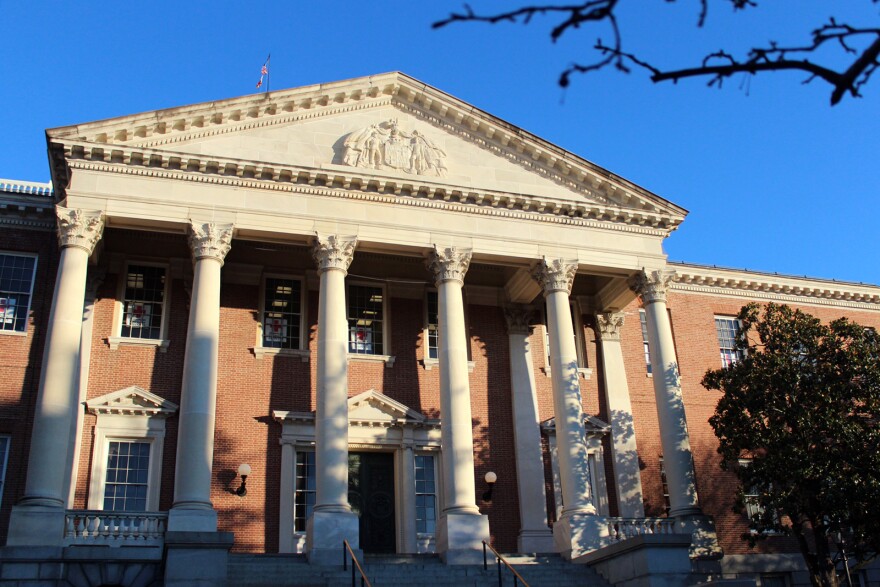A proposal before state lawmakers would expand Maryland’s hate crime law to include displaying a noose or swastika on someone else’s property without permission.
Versions of the bill passed both the House and the Senate during last year’s General Assembly session, but the chambers didn’t agree on a final version before time ran out.
Del. Mark Chang, an Anne Arundel County Democrat and the bill’s sponsor, told the House Judiciary Committee Tuesday that since the session ended, the need for the bill has only become clearer.
“Ku Klux Klan propaganda was dispersed in Lothian, Glen Burnie, and historic Ellicott City,” he said. “Racist graffiti and drawings of swastika were found at Goucher College in Baltimore County. Dozens of hate biases incidents, swastikas were identified at the University of Maryland, College Park. A noose was located on the property of Chesapeake Bay Middle School in Pasadena.”
And those are just a few. According to the State Police, Maryland law enforcement received reports of 398 hate or bias incidents in 2017, a nearly 35-percent increase over the previous year.
Chang said he knows of at least 33 incidents that happened after the legislature went home last April, and he said there are likely many more that were never reported to law enforcement.
“I think that if we are able to do something to specifically address nooses and swastikas, that it will stop. These activities have to stop,” he said. “We cannot go and have another session, have another Sine Die and not address this.”
Jacqueline Boone Allsup, president of the Anne Arundel County chapter of the NAACP, echoed Chang’s concerns about a recent rise in threats and hate crimes targeting African Americans.
“Nooses and swastikas placed with the intent to intimidate is an act of harassment at best, and it would not be too far afield to label it domestic terrorism,” she said.
Chang’s bill would expand the state’s hate crime law to include placing a swastika or noose on public or private property without consent and with the intent to threaten or intimidate a person or group of people. Anyone who violates the law would be guilty of a misdemeanor and would face up to three years in prison and up to a $5,000 fine.
It’s intended to close a gap in the existing hate crime law. Chang said the gap became apparent when two teenagers hung a noose from a light fixture outside Crofton Middle School. The Anne Arundel County Circuit Court judge overseeing the case said Maryland’s hate crime law didn’t apply because the teens didn’t explicitly threaten or target a specific person or group.
“Anne Arundel County has seen an uptick in hate crimes over the last several years, and part of the problem is identifying who are the victims,” Anne Arundel County State’s Attorney Anne Colt Leitess told the committee on Tuesday. “And so we need to come up with a legislative solution to the problems that the court found that the current hate crime does not address.”
Lawmakers’ challenge is preventing the bill from violating the First Amendment’s free speech protections.
For example, Republican Del. Dan Cox, who represents parts of Frederick and Carroll counties, asked about expanding the bill to include nooses or swastikas someone displays on his or her own property. But Chang said he worried that might infringe on free speech.
The bill in its current form avoids those kinds of conflicts, said Toni Holness, public policy director of the ACLU of Maryland.
“Over time the Supreme Court has announced certain categories of speech that are not First Amendment-protected,” Holness said. “That includes true threats, and the conduct that’s being criminalized by HB 4 does constitute a true threat.”
She emphasizes that the bill doesn’t restrict specific messages or ideas, a key test for whether it would be considered constitutional.







